Indonesia’s dream of a ‘smart forest’ capital becomes a vice-ridden nightmare
Sex work, cockfighting and illegal gambing are rife in Indonesia’s planned capital city, officials say, raising doubts about its future
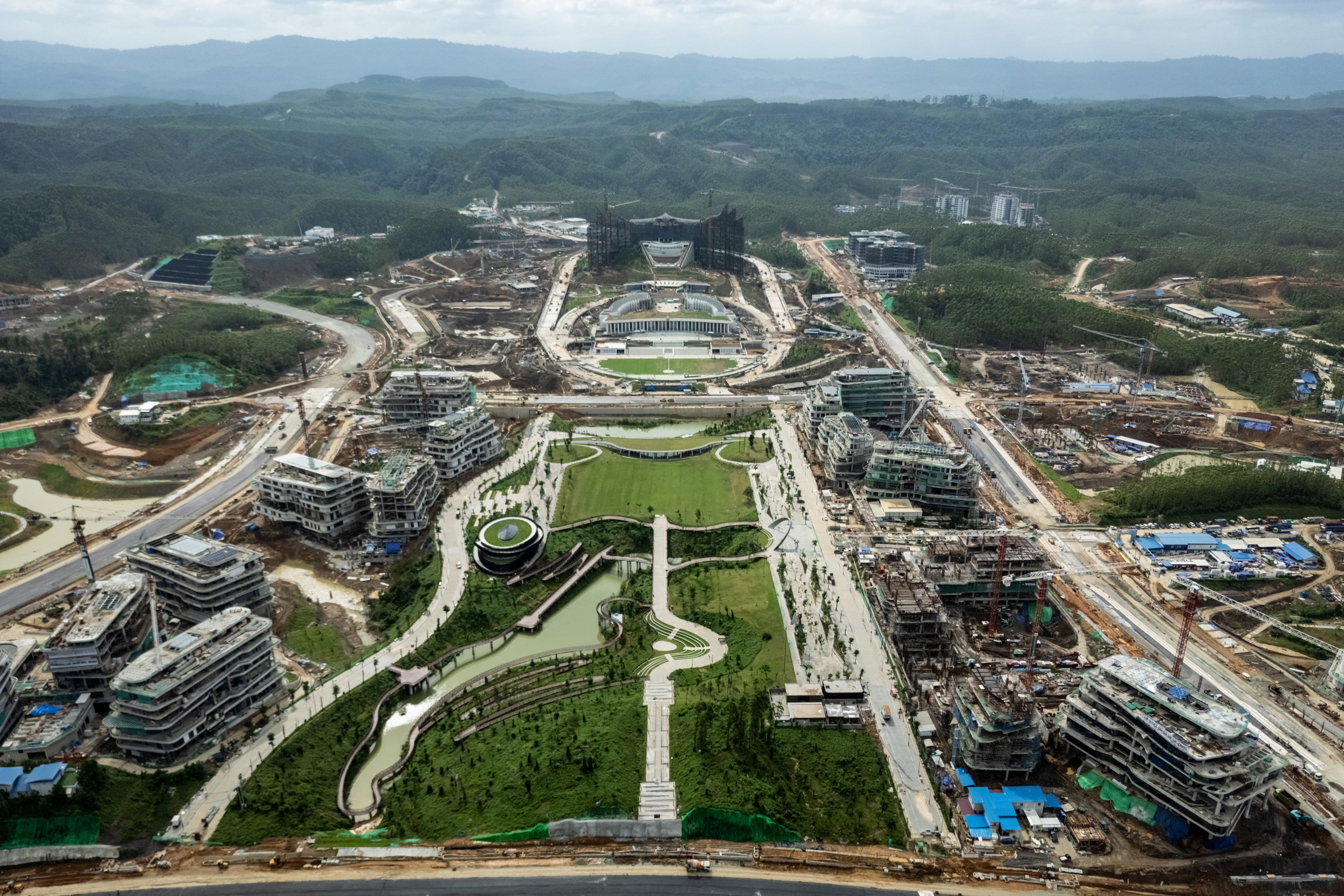
Indonesia’s dream of a gleaming new capital in the Bornean jungle is fast becoming mired in vice, ambivalence and growing doubts about its future under President Prabowo Subianto.
Once touted as a “smart forest city”, the US$28.5 billion legacy project of former president Joko Widodo has instead emerged as a magnet for prostitution, gambling dens and mounting scepticism.
Local officials and lawmakers warn that illicit activities have flourished, while the city’s governing authority scrambles to play down the scale of the problem – even as the project’s future appears increasingly precarious.
“For the past few days, the media has been filled with unpleasant news, including news related to prostitutes … or commercial sex workers,” lawmaker Muhammad Khozin said during a parliamentary hearing on July 8 with the Nusantara Authority, adding that this could cause anxiety for “the wives of civil servants” based in the city.
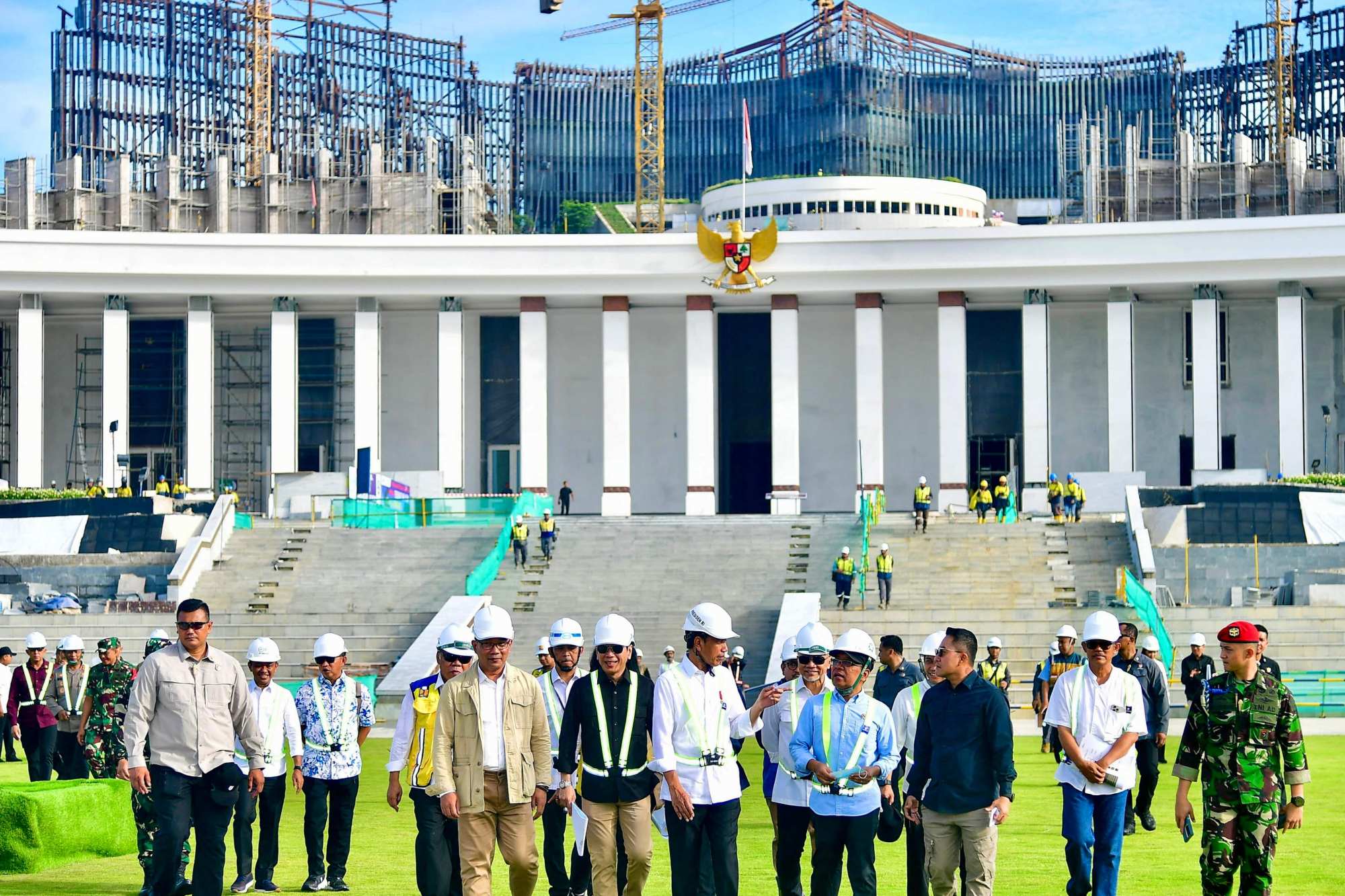
“Even though they [the officials] have a lot of money and high positions, if they have problems with their wives, their [freedom] in the world would be narrowed,” he said.
Apart from the sex workers, Muhammad said cockfighting and gambling had also taken root in Nusantara. “The epicentre of our country [has] become filled with immorality,” he said, tracing the rise of prostitution to 2022, when more than 27,000 construction workers from across Indonesia arrived in East Kalimantan province to build the city’s first phase.
Prostitution and gambling are illegal in Indonesia. Muhammad urged authorities to extend their vigilance into the nighttime hours, warning that daytime oversight alone would not suffice.
In response, Nusantara Authority chief Basuki Hadimuljono contended that prostitution “did not occur specifically” in the new capital itself, but rather some 3km (1.86 miles) away from the city’s core governmental zone in the surrounding Sepaku district. Both are part of the same regency, Penajam Paser Utara, in East Kalimantan.
Basuki called the claims of prostitution “recycled information”. “It’s no longer available,” he said, adding that law enforcement had cracked down on prostitution since Ramadan, dismantling “eight dimly-lit warung [food stalls]” suspected of facilitating the trade.
Penajam Paser Utara’s public order agency said on July 7 that it had detained 64 suspected sex workers in three raids between January and June. Bagenda Ali, the agency’s head, told state news outlet Antara that the women used the messaging app MiChat to arrange bookings, charging between 400,000 and 700,000 rupiah (US$25-US$43) per client. Some sex workers could see up to five clients a night in guest houses across Nusantara, he said.
The women came from cities as far afield as Bandung, Yogyakarta and Makassar – as well as Samarinda and Balikpapan in East Kalimantan – often working with pimps, known locally as mami, or independently. Bagenda added that those apprehended were typically ordered to leave the region “within two or three days”.
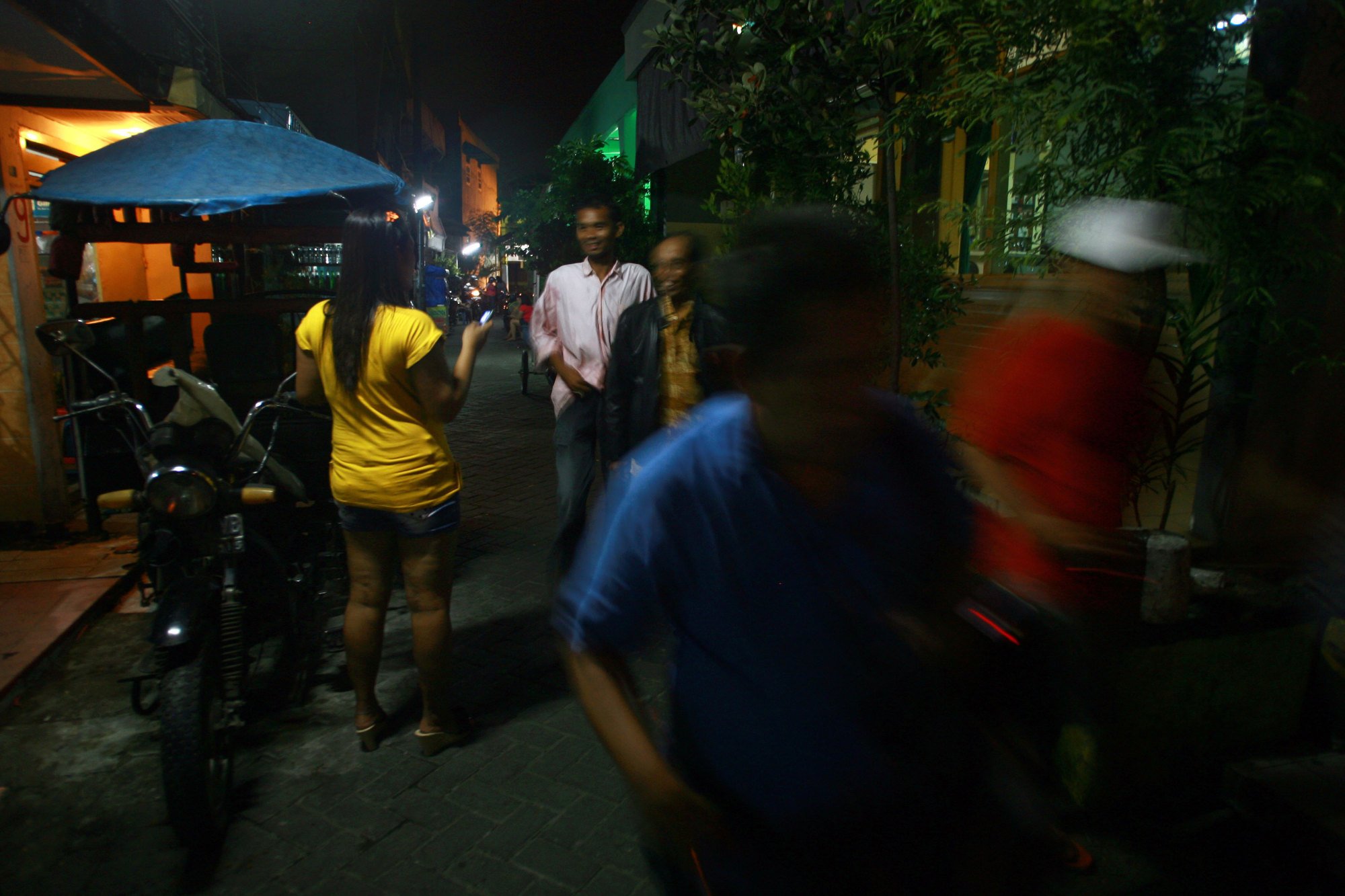
Cockfighting and dice gambling have also become a fixture of the new capital. On July 8, local police dismantled a suspected cockfighting arena in their third such raid that month, highlighting the persistent, whack-a-mole nature of the problem.
Despite official claims to the contrary, local media continue to uncover evidence of vice. On July 10, just days after the parliamentary hearing, online news platform Kumparan interviewed a sex worker – using the pseudonym Bunga – who said she had entertained “more than 10 guests” in her small rented room in less than three days since arriving from Kutai Timur regency, about nine hours’ drive away.
Unhandled type: inline-plus-widget {“type”:”inline-plus-widget”}
“I’m not afraid [of raids] because I don’t use drugs,” she told the outlet.
Community members have voiced their concerns over the social cost. “How about our children’s morals in the future when they see that? It will leave [an impact],” said Nurbaya, a local resident, as quoted by Kumparan.
Sociologist Derajad Sulistyo Widhyharto of Gadjah Mada University in Yogyakarta traced the problem to the closure of major red-light districts on Java island, which he said had scattered sex workers across Indonesia. Without official brothels, he explained, sex work had gone underground, with women now operating online or from rented rooms.
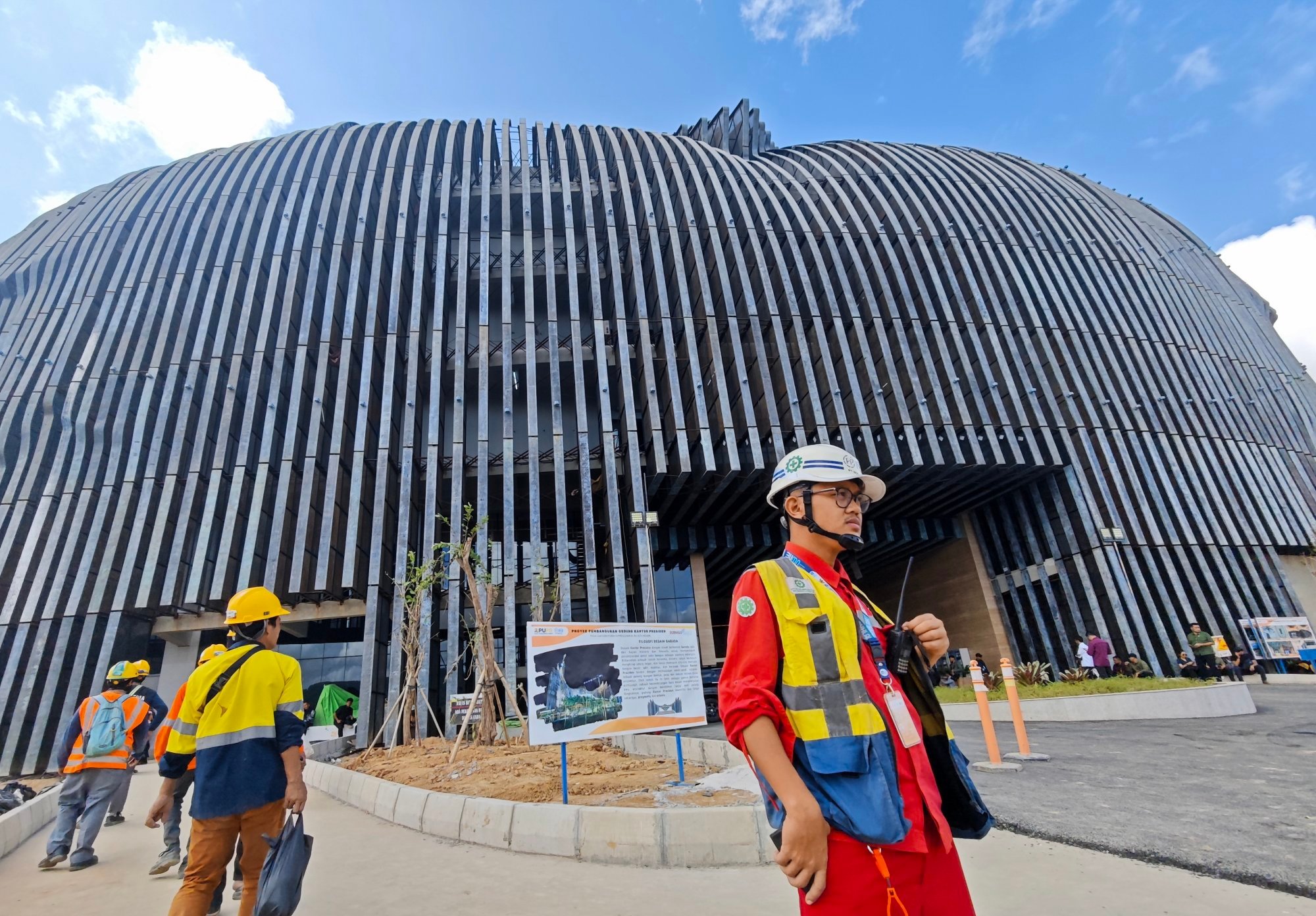
“When localised, the health of sex workers can be monitored,” Derajad told This Week in Asia. “When the red-light districts were disbanded, that control was lost. They [the sex workers] are now scattered across various hotels, in various cities, and are no longer traceable.”
He said the demand for sex work in Nusantara originated largely from construction workers separated from their families for months at a time. Crackdowns on vice were counterproductive, Derajad argued, urging the authorities to instead integrate sex workers and gamblers into Nusantara’s informal economy.
“Give them a chance,” he said. “Nusantara must become the nation’s capital, accepting the community who truly want to work there. There’s great potential here. They can be channelled into informal jobs, thus supporting the Nusantara ecosystem. This hasn’t been done yet.”
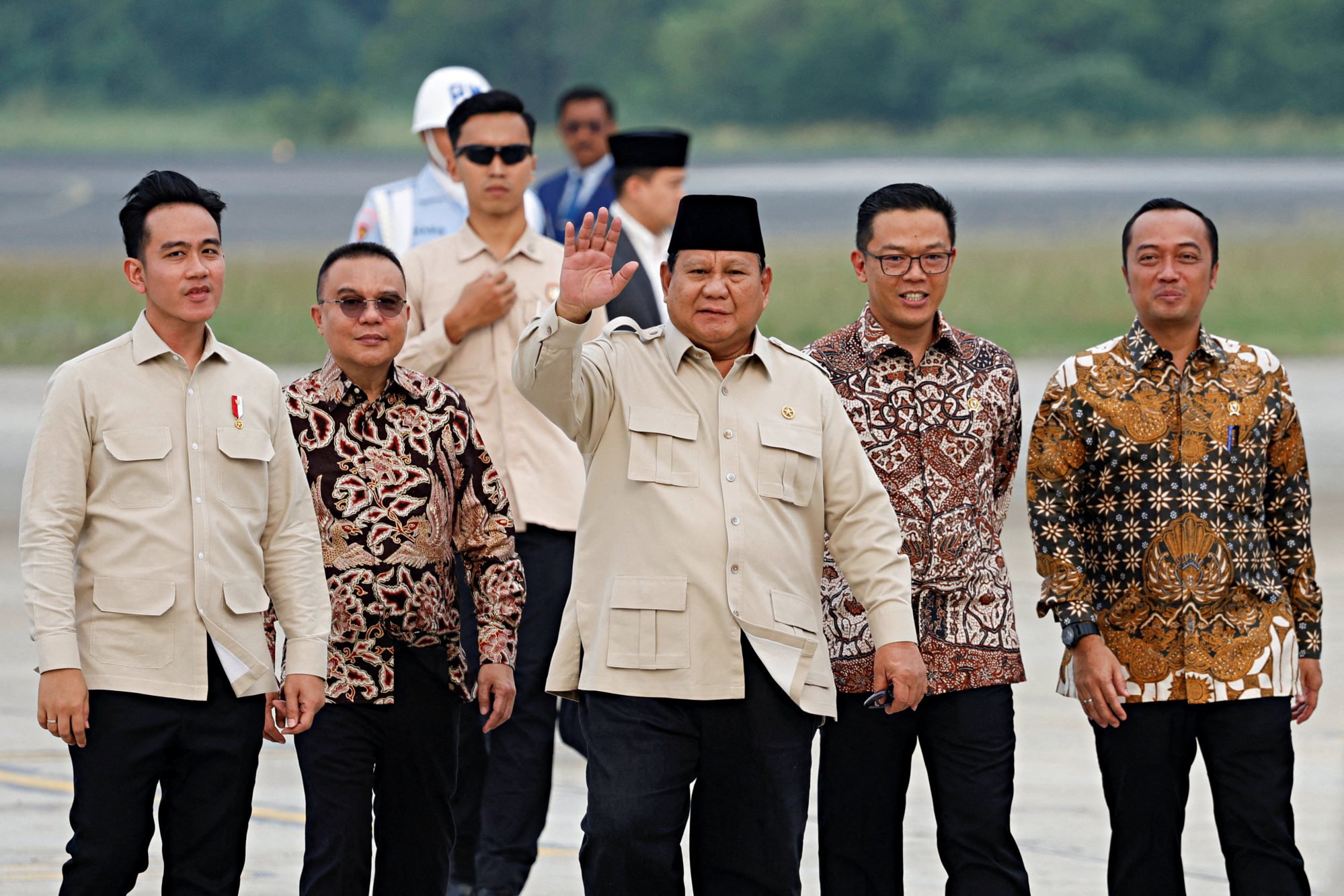
No longer a priority?
Nusantara’s woes are compounded by growing political ambivalence. President Prabowo, facing mounting financial pressures, has imposed spending cuts across government ministries to fund signature programmes such as free meals for children and affordable housing. As a result, the Nusantara Authority’s budget for this year was slashed from 6.3 trillion rupiah to 5.15 trillion rupiah (US$387 million to US$316 million) – though an additional 8.1 trillion rupiah was allocated for construction work.
While the government remains nominally committed to relocating the capital away from polluted, overcrowded, sinking Jakarta by 2028, Nusantara appears to be losing its lustre among the country’s elites. Last week, presidential communications chief Hasan Nasbi announced that the coming Independence Day ceremony on August 17 would be held in Jakarta – reversing last year’s largely symbolic move to the new capital.
“Prabowo is less than enthusiastic to use the state budget [to build Nusantara], as the money is allocated to fund Prabowo’s priority programmes,” said Trubus Rahadiansyah, a public policy expert at Trisakti University in Jakarta. “The maintenance cost of Nusantara is around 300 billion rupiah per year, that’s very useful to further Prabowo’s populist agenda.”
“Now Nusantara is seen as a mere ongoing construction work, not a priority,” he added.